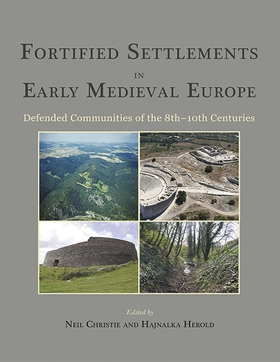
Lägg till önskelistan
Fortified Settlements in Early Medieval Europe e-bok
Pris
115 kr
Twenty-three contributions by leading archaeologists from across Europe explore the varied forms, functions and significances of fortified settlements in the 8th to 10th centuries AD. These could be sites of strongly martial nature, upland retreats, monastic enclosures, rural seats, island bases, or urban nuclei. But they were all expressions of control - of states, frontiers, lands, materials, communities - and ones defined by walls, ramparts or enclosing banks. Papers run from Irish cashels...
E-Bok
115 kr
Pris
Förlag
Oxbow Books
Utgiven
15 Februari 2021
Längd
352 sidor
Genrer
Historia & Arkeologi, Fackböcker
Språk
English
Format
epub
Kopieringsskydd
Vattenmärkt
ISBN
9781785702365
Twenty-three contributions by leading archaeologists from across Europe explore the varied forms, functions and significances of fortified settlements in the 8th to 10th centuries AD. These could be sites of strongly martial nature, upland retreats, monastic enclosures, rural seats, island bases, or urban nuclei. But they were all expressions of control - of states, frontiers, lands, materials, communities - and ones defined by walls, ramparts or enclosing banks. Papers run from Irish cashels to Welsh and Pictish strongholds, Saxon burhs, Viking fortresses, Byzantine castra, Carolingian creations, Venetian barricades, Slavic strongholds, and Bulgarian central places, and coverage extends fully from northwest Europe, to central Europe, the northern Mediterranean and the Black Sea. Strongly informed by recent fieldwork and excavations, but drawing also where available on the documentary record, this important collection provides fully up-to-date reviews and analyses of the archaeology of the distinctive settlement forms that characterized Europe in the Early Middle Ages.




